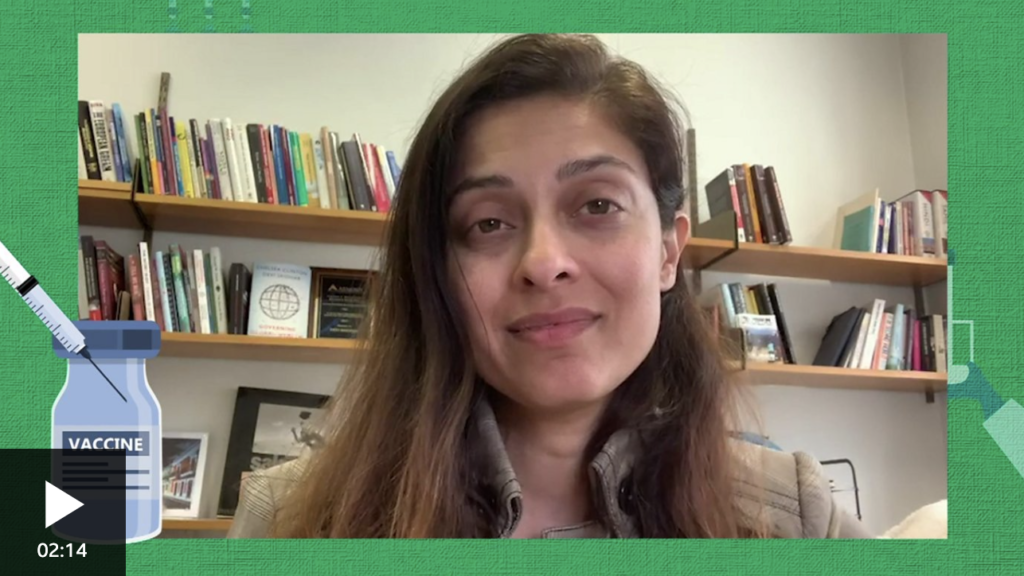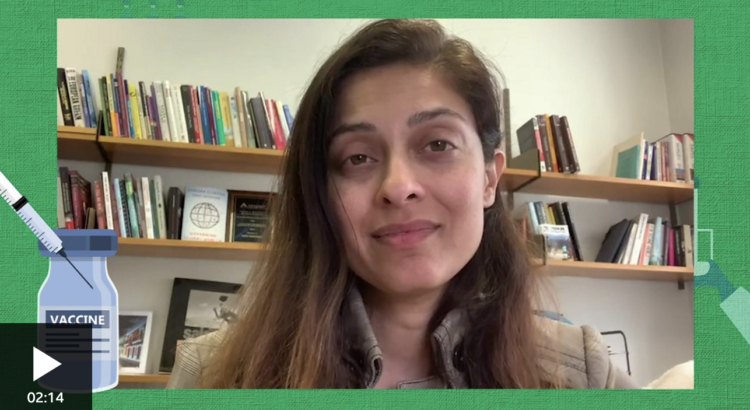
Biased content targets children
In a week of very worrying developments, HART has been particularly appalled by a recent piece on BBC Newsround promoting the Pfizer vaccine for children.
HART’s most senior doctors are in full agreement that this video material is heavily biased, makes a series of factually incorrect statements, could be considered coercive propaganda and likely breaches the marketing authorisation. It is particularly concerning that the main speaker in the piece – a public health academic – is not a qualified clinician.
Of even greater concern, we are aware that it has been shown in schools. The bottom line is this: children are essentially at zero risk of COVID-19. Any justification for the vaccination of children must therefore be able to prove unequivocally that the cure is not worse than the disease.
Here is what BBC Newsround said, and what HART believes they should have said:
| Question 1: | Is it safe for children? |
| BBC Newsround: | “There are some side effects like headaches and fatigue, but in at least two months [of trials] there was nothing actually significant“. |
| HART Response: | This answer is disingenuous. The Pfizer trial data are grossly underpowered to detect relatively rare serious events with only 1,131 children actually receiving the vaccine, monitored for two months. Seven of these children had severe adverse events associated with the vaccine, one of which was life-threatening. The risk to children from COVID-19 is extremely low, therefore even a relatively small rate of adverse effects from the vaccine would mean that the risks associated with vaccination are greater than those associated with contracting SARS-CoV-2 and getting COVID-19. An independent preliminary Yellow Card reporting review advises that all COVID-19 vaccination should be halted, pending a full independent safety enquiry. In summary, HART does not think that it has been demonstrated that this vaccine is safe for children. |
| Question 2: | Does the vaccine work? |
| BBC Newsround: | “So when the Pfizer vaccine was trialled among children in the United States, they found absolutely no cases of illness in the group that received the vaccine”. “So it looks like the vaccine does protect against getting COVID-19″. |
| HART Response: | The Newsround answer is just false logic – while the vaccine might ‘work’, a short and under-powered trial cannot prove this statement. The absolute risk of symptomatic COVID-19 in children is very low, so enormous numbers of children (over two million) would need to be vaccinated to prevent even one death from COVID-19, all the while putting these children at significant risk of adverse vaccine events and the unknown medium and long-term risks of unknown adverse events. |
| Question 3: | Will the vaccine for children be the same as the adult version? |
| BBC Newsround: | “The child and adult version of the Pfizer vaccine are actually exactly the same”. “The vaccine has already been used in millions of adults and now it has been trialled in children and rolled out already in the United States and in Israel”. |
| HART Response: | Shockingly, this statement is actually true. But it rings alarm bells for many clinicians: getting the dose right is critical to minimise side effects or toxicity. This is especially the case for mRNA or DNA vaccines, since it is likely that the more active immune system of children will result in more of the spike protein – now linked to harms – being produced inside the child’s body. |
| Question 4: | “What are the benefits and disadvantages of getting the vaccine?” |
| BBC Newsround: | “The benefit of getting the vaccine is you don’t need to worry about COVID-19”. “It means you’re likely to not infect your parents, the people you live with and your teachers”. “The downside is it’s another jab, another injection into your arm. But the benefits definitely outweigh the risks”. |
| HART Response: | What benefits? Children gain no individual or personal clinical benefit from the vaccine. COVID-19 vaccines remain totally unnecessary for children themselves. Most other vaccines for children are for childhood diseases: measles and mumps both cause significant illness in children. There is no reasonable comparison with polio or smallpox. Moreover, “once most adults are vaccinated, circulation of SARS-CoV-2 may in fact be desirable, as it is likely to lead to primary infection early in life when disease is mild”. So in fact, “vaccinating children might increase the frequency of large seasonal epidemics, leading to overall increases in virus induced morbidity and mortality”. Children should never have been made to worry about COVID-19. It has been shown that the vast majority of healthy children get no symptoms, or very mild symptoms like a heavy cold. The purpose of any vaccine (for the individual) is to ensure that if they do get the infection, they get a milder form of it, reducing the chance of hospitalisation or death, and increasing overall natural resistance within the community. Studies suggest a limited role for young children in sustaining chains of transmission. There is overwhelming evidence, therefore, that children are not the drivers of this epidemic – they are not ‘vectors of disease’. Children should have been hailed as protectors of their families, not ‘granny killers’. HART sees no reason to vaccinate children for COVID-19. |
| Question 5: | What are the side effects of the Pfizer jab? |
| BBC Newsround: | “Some children experience similar side effects to adults – these include fatigue (feeling tired), having a headache, feeling generally unwell, but these cleared within a day or two”. “And it seems a small price to pay for actually being protected from the real disease”. |
| HART Response: | Newsround seems to have been wearing rose-tinted spectacles. A more pertinent answer would have referred to the recent FDA report and upcoming CDC emergency meeting on myocarditis (inflammatory condition of the heart) in young people following vaccination: a higher-than-expected number of young men have experienced heart inflammation after their second dose of the Pfizer vaccine. Myocarditis leads to a high rate of heart failure in the decade after recovery when induced by viral infection, usually only treatable by transplantation. The longer-term future for children having vaccine-induced myocarditis is unknown. The ‘small price to pay’ claim is therefore both a logical fallacy and totally unjustified – the clinical trial is too underpowered to prove safety, and most certainly does not ‘prove’ the vaccine’s protective properties. |
Any medical intervention must be accompanied by the most comprehensive information possible to ensure that the recipient is making an informed decision. The right to Informed Consent is enshrined in UK and international law, and in the NHS constitution, and medical and nursing professional guidelines. Information given must include all material risks, however small, and must be free of coercion or pressure. Providing misleading and incomplete information in order to encourage consent is in breach of these laws and guidelines.
In conclusion, therefore, the statements made in the recent Newsround piece are, at best, economical with the truth. We note the BBC is at least partly aware of this, as it was edited to have a safety claim removed. We would encourage the BBC to go a step further and unequivocally present the case against COVID-19 vaccination for children. COVID-19 child vaccination is unnecessary, fraught with risks and therefore unethical. We must not repeat mistakes from history.

